An examination of the infamous thirty-year-old cold case of Iowa paperboy Johnny Gosch, the first missing child to appear on a milk carton. The film focuses on Johnny’s mother, Noreen Gosch, and her relentless quest to find the truth about what happened to her son. Along the way there have been mysterious sightings, bizarre revelations, and a confrontation with a person who claims to have helped abduct Johnny.
Related Movies
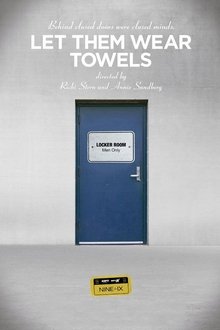
Let Them Wear Towels (2013)
During the 1977 World Series, Sports Illustrated reporter Melissa Ludtke was denied access to the players' locker room. After a very public fight, the door was opened, but the debate about female journalists in the male sanctum of the clubhouse remained. Through interviews with pioneering female sports writers, Let Them Wear Towels captures the raw behavior, humorous retaliation, angry lawsuits and remarkable resolve that went into the struggle for equal access for women reporters.
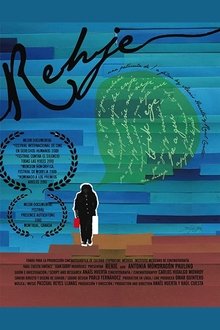
Rehje (2009)
After forty years living in Mexico City, Antonia longs to go back to her home town, a Mazahua village in the state of Mexico. When she returns, she discovers many things, including that a scarcity of water threatens life in her community.
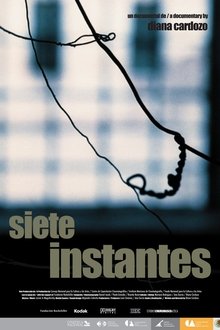
Seven Moments (2008)
Is the story of women that were guerrilleras in Uruguay at the beginning of the 70's. Under an intimate focus, the film shows the moments of decision and the personal crossroads that it involve. The documentary search the experience and the look of common individuals in exceptional situations and goes to the bottom of the load of tensions, fears, contradictions and personal costs that those labor instants of the History have.
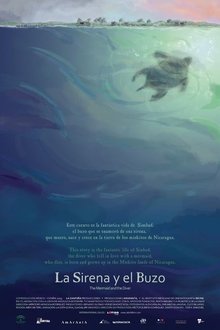
The Mermaid and the Diver (2009)
The body of Sinbad the Diver turned up floating off the Atlantic coast of Nicaragua. The mermaid had turned his soul into a turtle, and the turtle was the one who returned him to the world of men. Sinbad was born once more as a Miskito and was raised on the banks of the wonderful Coco River. When he grew up, nature took care of carrying him back to the sea, where the mermaid is waiting for him. The Mermaid and the Diver is a journey to Central America, to Nicaragua, to the Atlantic Coast, and to the Miskito people.
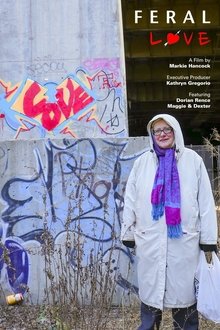
Feral Love (2016)
Crazy cat lady or world-class musician? You decide. Dorian Rence smashes our notions of what matters and who counts in "Feral Love." Dorian was the seventh woman to join the New York Philharmonic. In her 40-year career she has performed with all the greats: Leonard Bernstein, Pierre Boulez, Zubin Mehta, Yo Yo Ma to name a few. And she cares for a feral cat colony in the tunnels of New York City.
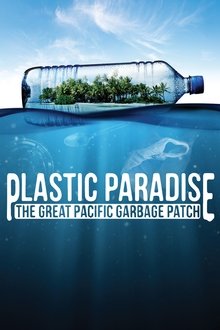
Plastic Paradise: The Great Pacific Garbage Patch (2013)
"Plastic Paradise" is an independent documentary film that chronicles Angela Sun's personal journey of discovery to one of the most remote places on Earth, Midway Atoll, to uncover the truth behind the mystery of the Great Pacific Garbage Patch. Along the way she encounters scientists, celebrities, legislators and activists who shed light on what our society's vast consumption of disposable plastic is doing to our oceans -- and what it may be doing to our health.
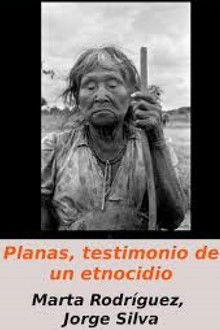
Plains: Testimony of an Ethnocide (1971)
A documentary on the massacre of Planas in the Colombian east plains in 1970. An Indigenous community formed a cooperative to defend their rights from settlers and colonists, but the government organized a military operation to protect the latter and foreign companies.
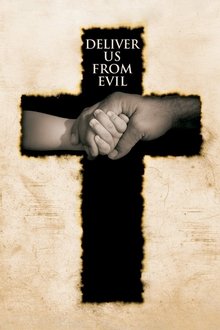
Deliver Us from Evil (2006)
Documentary filmmaker Amy Berg investigates the life of 30-year pedophile Father Oliver O'Grady and exposes the corruption inside the Catholic Church that allowed him to abuse countless children. Victims' stories and a disturbing interview with O'Grady offer a view into the troubled mind of the spiritual leader who moved from parish to parish gaining trust ... all the while betraying so many.

Sound and Chaos: The Story of BC Studio (2014)
For over 30 years, Martin Bisi has been recording music from his studio in Gowanus, Brooklyn. He has worked with many influential musicians, including Sonic Youth, Swans, Herbie Hancock, Brian Eno and the Dresden Dolls. Now though, he finds himself squeezed in by the approaching gentrification of his neighborhood.
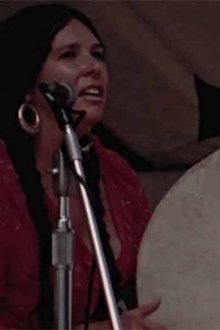
Our Dear Sisters (1975)
Alanis Obomsawin, a North American Indian who earns her living by singing and making films, is the mother of an adopted child. She talks about her life, her people, and her responsibilities as a single parent. Her observations shake some of our cultural assumptions.
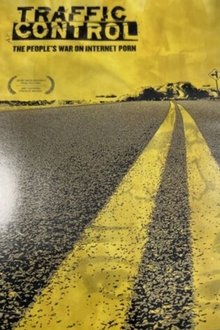
Traffic Control: The People's War on Internet Porn (2007)
A documentary that follows a new piece of legislation on its way to Capitol Hill. The Internet Community Port Act, also known as CP80 or Community Port 80, asks that adult content be placed on separate channels (ports) on the Internet so that parents can keep it out of their homes and schools. What ensues is a ferocious debate between parents, pornographers, doctors, technologists, addicts, business owners and children. But one voice is missing: our political leaders.

Nuuca (2018)
In this evocative meditation, a disturbing link is made between the resource extraction industries’ exploitation of the land and violence inflicted on Indigenous women and girls. Or, as one young woman testifies, “Just as the land is being used, these women are being used.”
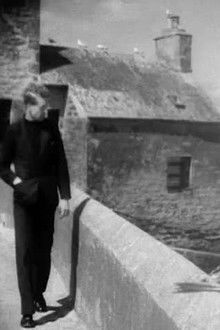
The Rugged Island: A Shetland Lyric (1933)
Hailed by John Grierson as 'one of the best descriptions of life in the country anybody has yet made', the film follows a young couple torn between the choice of emigration to Australia or remaining to work their croft in Shetland.

The Rock-n-Roll Farmers: Donnie & Joe Emerson (2012)
From: Light In The Attic Records: ‘Baby’ has been a staple on just about every playlist/mixtape I’ve assembled in the past 3 years. It is nothing short of sublime.” – Ariel Pink Pacific Northwest isolation mixed with wide-eyed ambition, a strong sense of family and the gift of music proved to be quite the combination for teenage brothers Donnie and Joe Emerson. Originally released in 1979, Dreamin’ Wild is the sonic vision of the talented Emerson boys, recorded in a family built home studio in rural Washington State. Situated in the unlikely blink-and-you-missed-it town of Fruitland and far removed from the late 1970s punk movement and the larger disco boom, Donnie and Joe tilled their own musical soil, channeling bedroom pop jams, raw funk, and yacht rock.
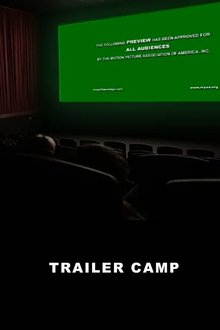
Trailer Camp (1995)
Film archivist and former director of the San Francisco Lesbian and Gay Film Festival Jenni Olson created this fast-paced and often funny, campy 75-minute film comprised entirely of spliced together movie trailers. Some of the segments have themes such as a breezy look back at John Travolta's career that includes trailers from such films as Saturday Night Fever, Staying Alive, Grease, Perfect, and Moment by Moment. Other trailers include Mae West in Sextette, the disco camper Thank God It's Friday, Raquel Welch in Kansas City Bomber, Pier Paolo Pasolini's The Gospel According to St. Matthew and the rarely seen Chastity, the serious acting debut of Cher.
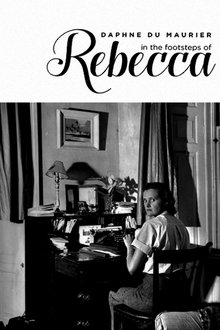
Daphne du Maurier: In Rebecca's Footsteps (2017)
A portrait of the masterful author whose novels were adapted into the classics 'The Birds,' 'Jamaica Inn,' and 'Rebecca."
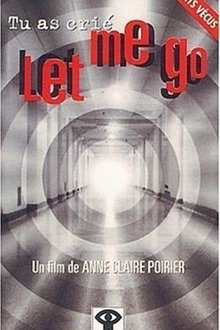
You Cried: Let Me Go (1997)
The Director reflects upon and seeks to understand the causes and the events that lead to her drug-addicted prostitute daughter being murdered at the age of 26.
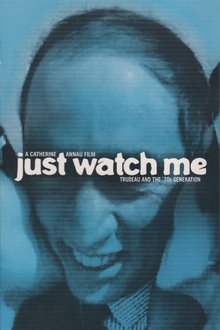
Just Watch Me: Trudeau and the 70's Generation (1999)
Canadian director Catherine Annau's debut work is a documentary about the legacy of Pierre Trudeau, the long-running Prime Minister of Canada, who governed during the 1970s. The film focuses particularly on Trudeau's goal of creating a thoroughly bilingual nation. Annau interviews eight people in their mid-30s on both sides of the linguistic divide. One tells of her life growing up in a community of hard-core Quebec separatists, while another, a yuppie from Toronto, recalls believing as a child that people in Montreal got drunk and had sex all day long. Annau has all of the interviewees discuss how Trudeau's policies affected their lives and their perceptions of the other side, in this issue that strikes to the heart of Canada's national identity.